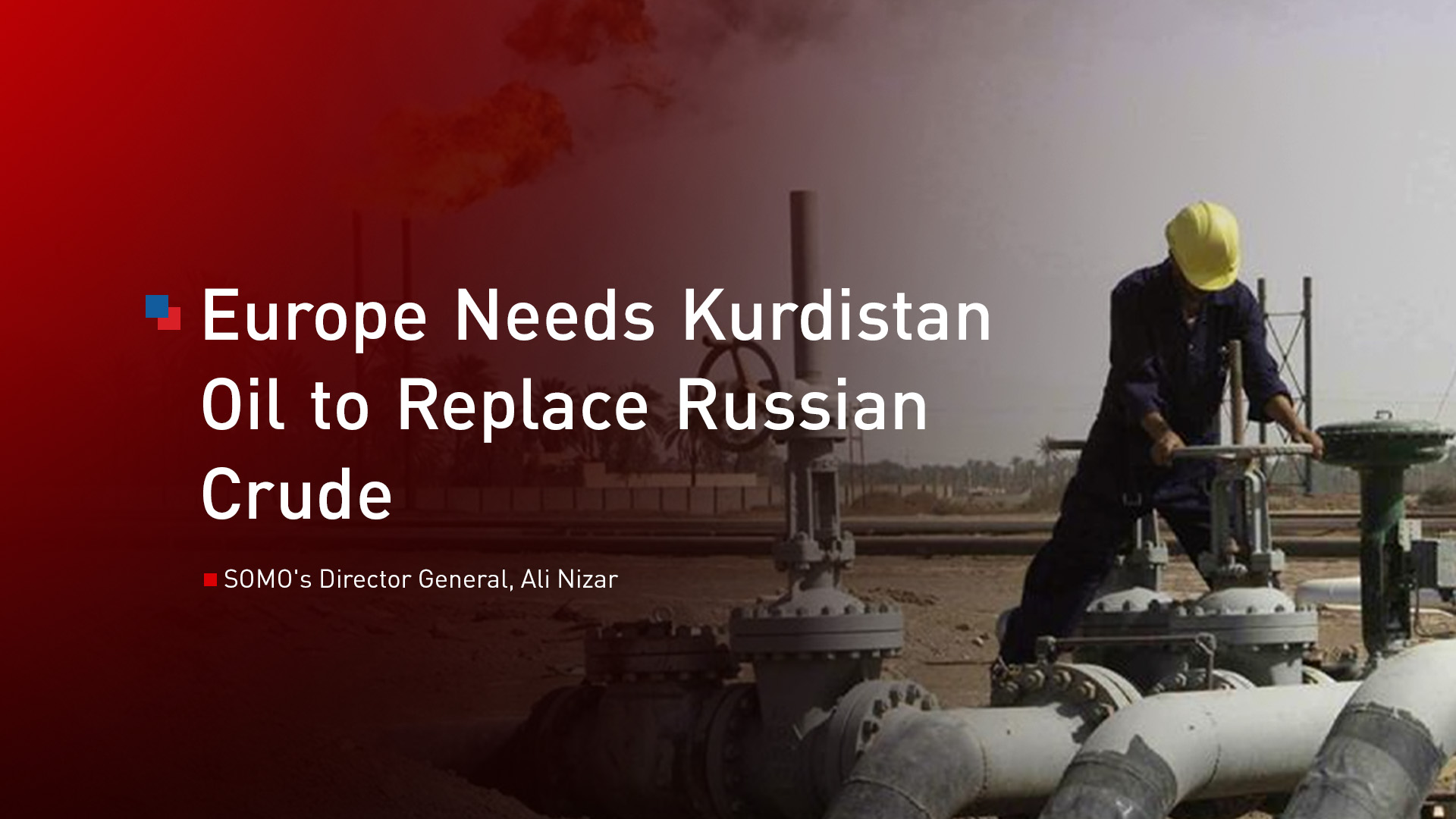SOMO Director Confirms Kurdish Oil Exports to Resume Saturday
SOMO Director Ali Nizar confirms Kurdish oil exports will resume Saturday at 6 a.m., with 240,000 bpd handed to SOMO and 50,000 retained locally.

ERBIL (Kurdistan24) – Iraq’s State Oil Marketing Organization (SOMO) Director General Ali Nizar confirmed on Friday that crude oil exports from the Kurdistan Region will resume on Saturday at 6 a.m., assuring international oil companies that their entitlements will be paid securely through the U.S. Federal Reserve.
Speaking at a press conference on Friday, Nizar announced that the Federal Ministry of Oil, the Kurdistan Region’s Ministry of Natural Resources, and international oil companies had reached what he described as a “comprehensive and professional” agreement on the export mechanism through Turkey’s Ceyhan port. He stressed that the federal government considers the deal an honorable commitment, serving both Kurdistan and Iraq.
According to Nizar, the Kurdistan Region will hand over around 240,000 barrels of oil daily to SOMO while retaining 50,000 barrels for domestic consumption. He emphasized that nothing stands in the way of the agreement’s implementation and reiterated that the first shipments will commence at 6 a.m. Saturday without disruption.
The SOMO director highlighted the strategic importance of Kurdistan’s oil, noting that Europe urgently needs it to replace Russian crude. He underlined that Kurdish oil could also supply markets in both North and South America, increasing the Region’s global energy significance. Nizar pointed to the location of Ceyhan on the Mediterranean, describing it as a gateway to European energy markets and a central hub for Iraq’s international exports.
Nizar revealed that negotiations and meetings to reach this agreement stretched over thirty months, underscoring that such a deal would never have materialized without professional and fundamental dialogue. He confirmed that international oil companies had been reassured with clear financial guarantees, including $16 per barrel in entitlements, to be transferred through the U.S. Federal Reserve in accordance with legal frameworks.
He also disclosed that after this phase, the Federal Ministry of Oil will conclude a contract with an international auditing firm to reassess production and transfer costs from Kurdistan’s oilfields. Once the arrangement is completed, payments will be made in full settlement to the companies.
The SOMO chief underlined that the new export deal must not be seen as temporary, but as the foundation for long-term understanding and stability between Erbil and Baghdad. On Kirkuk oil, Nizar affirmed that once available, it too will be securely exported through the Iraq–Turkey pipeline, alongside Basra crude, ensuring Iraq’s national framework of energy supply is strengthened.
Regarding revenues, he clarified that the Kurdistan Region’s oil income will become part of Iraq’s federal budget, noting that the deal will ease long-standing disputes, particularly over public sector salaries in the Kurdistan Region. He stressed that the agreement will help stabilize finances and remove many barriers between Baghdad and Erbil.
On Thursday, the Federal Ministry of Oil confirmed in a statement that it had reached an agreement with the Kurdistan Region’s Ministry of Natural Resources and international companies to resume exports through Ceyhan. The ministry outlined the mechanism: all oil from the Kurdistan Region will be delivered to SOMO, which will market it globally, except for the portion retained for domestic use.
In parallel, the Kurdistan Region’s Ministry of Natural Resources issued its own statement confirming the arrangement and declaring that exports would restart within 48 hours.
The United States welcomed the agreement, with the State Department highlighting the breakthrough and commending Kurdistan Region Prime Minister Masrour Barzani for his determination in securing the deal. Miles Caggins, spokesperson for the Association of the Petroleum Industry of Kurdistan (APIKUR), appearing on Kurdistan24’s Basi Roj program, affirmed that companies were ready to restart exports. He stressed that the ministries, SOMO, and companies will jointly monitor the deal’s implementation.
Caggins praised Prime Minster Barzani’s leadership, saying: “We thank the Prime Minister and are pleased with this major achievement.” He also revealed that Washington played an active role, at times exerting pressure, to ensure that the agreement was finalized.
For his part, Prime Minister Barzani hailed the tripartite deal between the Kurdistan Regional Government, SOMO, Iraq’s Federal Ministry of Oil, and international oil producers tripartite agreement and said: "With this step, oil from Kurdistan Region’s fields will again enter the global market,” the Prime Minister noted, commending “everyone, especially the resilient people of Kurdistan, for overcoming a major obstacle to securing their legitimate financial rights on this historic day.”